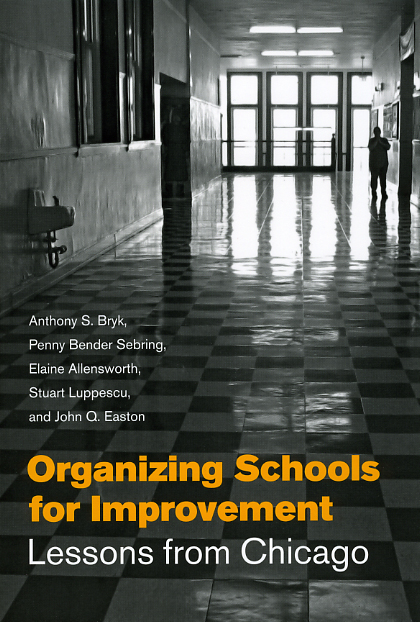One education story we aren't reading in the national press

Earlier this week, Education Week published a story, "Scholars Identify 5 Keys to Urban School Success," (registration required for access) about the new book Organizing Schools for Improvement: Lessons From Chicago. From the University of Chicago Press website:
The authors of this illuminating book identify a comprehensive set of practices and conditions that were key factors for improvement, including school leadership, the professional capacity of the faculty and staff, and a student-centered learning climate. In addition, they analyze the impact of social dynamics, including crime, critically examining the inextricable link between schools and their communities. Putting their data onto a more human scale, they also chronicle the stories of two neighboring schools with very different trajectories. The lessons gleaned from this groundbreaking study will be invaluable for anyone involved with urban education.
These factors are:
1) Strong principal leadership that focuses on instruction and is inclusive of others in the work, as opposed to our current, top down leadership that dictates to principals instead of trusting them to lead.
2) A welcoming attitude toward parents and a formation of connections to communities.
3) Development of professional capacity—treating teachers like professionals and giving them good professional development and collaboration time.
4) A safe, welcoming, stimulating, and nurturing environment for all students.
5) Strong instructional guidance and materials, not forced curricula
When all five of these supports were working in tandem, the Consortium on Chicago School Research (the group doing the study from which the book was published) found that schools improved.
(Not to mention that it's not about charters, vouchers, or various other flavors of the week.)
There was a symposium on the release date of the book.
- Download the slides from January 14 symposium
- Handouts: The Essential Supports
- Handouts: Truly Disadvantaged Schools
- Handouts: Supplemental Information
Labels: change-innovation-transformation, education, provision of public services



0 Comments:
Post a Comment
<< Home